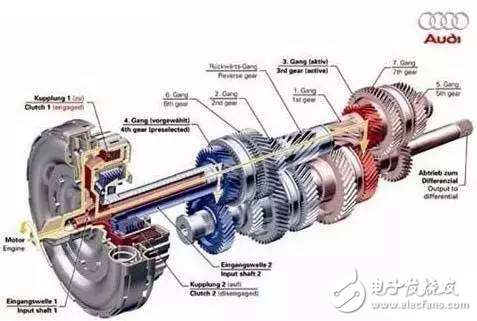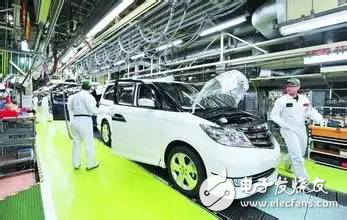Japanese cars and German cars are the two largest foreign brands that run the most on Chinese roads. So, is the Japanese car's high-tech manufacturing technology? Or is the technology of German cars better? In the field of racing cars and sports cars, the advantages of the German brand are undoubtedly more obvious, and the Japanese cars in the sports car in addition to the Nissan GTR, the other basically have no fame, and can not play in the car. In addition, in luxury cars, BMW, Mercedes-Benz, Audi, Porsche and other brands have their own luxury cars, sports cars, even the public, have more than two million worth of Phaeton, and then look at Japanese cars, it seems a lot dim.
Electric and hybrid fields

Japanese brands have an advantage over the German brand in terms of electric vehicles and hybrids. It was reported that the German Daimler Group wanted to acquire Toyota's hybrid technology, but was responded by Toyota: the Germans underestimated the technical content of the hybrid.
Core Technology
First of all, let's talk about the engine. For Japanese and German, I believe that many people know that Japanese cars are mainly based on natural inhalation; while German cars are mainly turbocharged. Although natural inhalation technology is more traditional, it is superior in stability and fuel economy. Turbocharging has problems such as burning oil and being prone to spontaneous combustion, but the power is more sufficient. As for how to choose a family car, consumers still have to work hard to consider.

When it comes to gearboxes, German brands are clearly more advantageous in multi-gear automatic transmissions for mid- to high-end models, such as the EV gearbox. On the automatic transmission of the small car, the Japanese brand Aisin gearbox has higher stability. However, in recent years, the dual-clutch gearbox used by the German car is obviously more advantageous than the Japanese CVT.
Research and development concept

The Germans are more focused on the "driving force" of a car in research and development. Engineers have a strong desire to research and innovate in technology, and have higher requirements on the power and stability of the vehicle. The Japanese brands are more market-oriented, with innovation as the secondary, and the demand for technology research and development is not as high as the German system. The savvy aspect of Japanese car brands is: market-oriented, what consumers need, what I produce.
Manufacturing process
In this respect, the Japanese and German brands are really bad to say, especially after production in China. However, from the point of view of consumers, the quality of spare parts of Japanese first-line brands is better than that of German brands, because Japanese is more stable and less problematic. However, it should be pointed out that although the two major brands have reduced matching behavior, consumers feel that the reduction is more outrageous Japanese cars.
reliability
The reliability of Japanese cars is higher than that of German cars. Why? Because the German brand has more research and development and application of new technologies, it is willing to use many new technologies on the models, but the new technology means unstable and immature, so there will be more minor problems. On the other hand, Japanese cars, a market as a guide, to maintain the current market share is often more practical than the introduction of new and timely, so the use of some traditional, stable technology to ensure the stability of the vehicle.
safety
Some people say that the German car body is heavy and safe. Some people say that the Japanese car will have low safety. In fact, the safety of the two major brands is a matter of opinion. Of course, look at the performance of the two major brands in traffic accidents. So, who do you think is more secure in Japanese and German?
Black Light Tube,Blb Tube,Blb Bulb,Blb Lamp
Changxing leboom lighting product CO.Ltd. , https://www.leboomuv.com